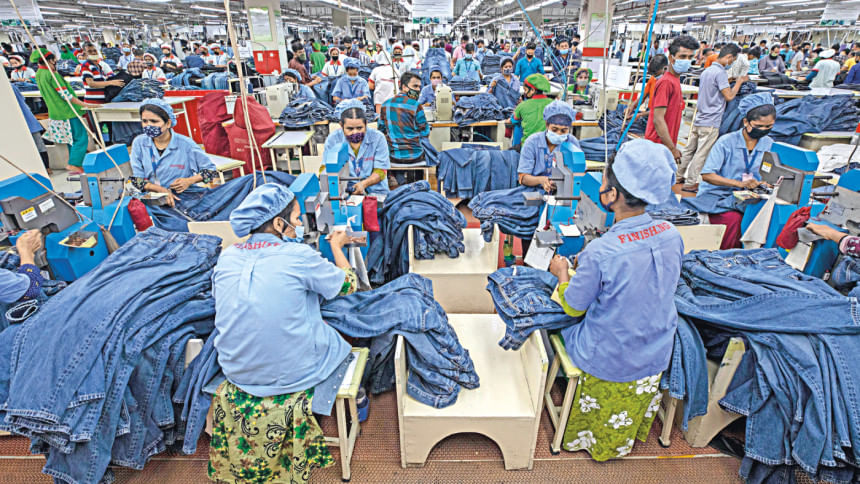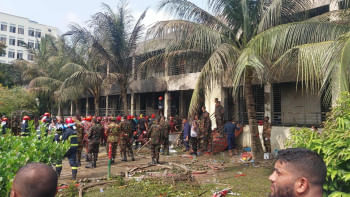Review RMG workers' wages annually, not every five years

Researchers from Cornell University's Global Labor Institute (GLI) yesterday called for an annual review and wage-setting process in Bangladesh instead of the current procedure, which reviews wages every five years.
The analysis found that, given current inflation rates, garment workers in Bangladesh paid the minimum wage are losing income year after year, Jason Judd, executive director of GLI told journalists in Dhaka.
Currently, garment workers receive a nine percent adjustment to their basic payment annually, mainly to adjust to inflation.
For instance, annual inflation may be even higher than nine percent, Judd said, adding that he has already submitted a set of recommendation to the members of the country's labour reforms commission.
The researchers noted that the long-time minimum-wage policy - which reviews wages every five years - compounded with high inflation, favors employers over workers.
In addition, it said that the local 'purchasing power' in Bangladesh is significantly lower than those of workers in competing apparel producing countries.
As a result, researchers called on the government to simplify the minimum wage structure and adjust wages annually. It also recommended that genuine trade union representatives, chosen by labor federations, are appointed to a wage board.
The analysis noted that the Cambodian government took a similar approach when it overhauled its wage-setting policy a decade ago. It also notes that wages have grown regularly alongside orders and output since then.
The study suggested the government institutionalise the annual review of minimum wages, announcing a review of the 2023-set minimum wage to take place in 2025.
It suggested seeking explicit reassurances from brands, saying they would support the increase in the minimum wage via higher prices.
Distinguish in the wage-setting process, and social dialogue more generally, between genuine worker representatives and others and extend freedom of association and bargaining rights to workers in export processing zones as complements to democratic representation of workers and wage enforcement efforts, the study also said.

 For all latest news, follow The Daily Star's Google News channel.
For all latest news, follow The Daily Star's Google News channel. 



Comments